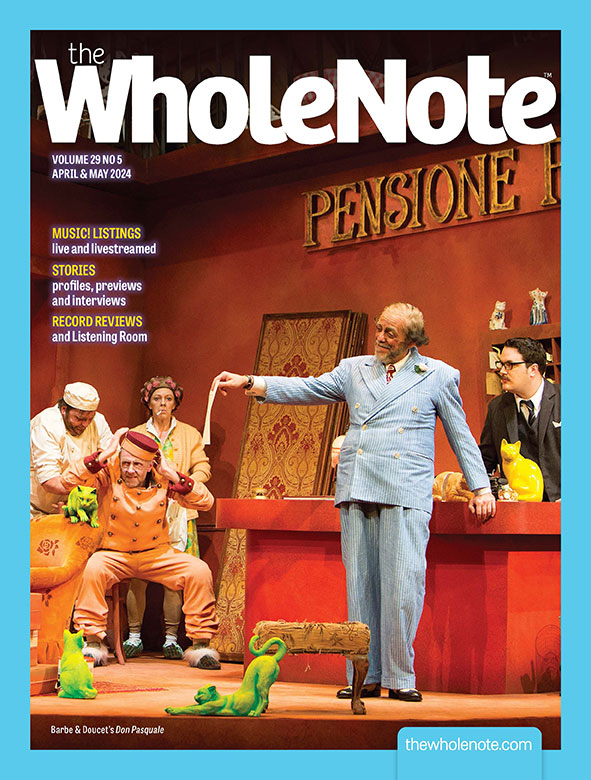Both Sides of the Street
The WholeNote doesn’t publish a “Manitoba Edition” – but if we did, it might well feature the two artists interviewed in this issue. Violinist James Ehnes hails from Brandon, Manitoba, and has gone on to international fame and fortune. Vocal coach and conductor Miah Im, who currently teaches at the University of Toronto, was born in Winnipeg.
And something else connects Im and Ehnes, at least on this occasion. They’re both performing in halls on Philosopher’s Walk – the brick lane that’s a direct path between the Royal Conservatory of Music and U of T’s Edward Johnson Building. With the opening of Koerner Hall, the Bloor-Avenue Road area has become an intensely musical place. And while the RCM and the Faculty of Music tend to maintain their solitudes, their approximity seems to be a good thing from a concert-goer’s standpoint.
The WholeNote has never published a “Vocal Edition,” either – although the current issue comes pretty close. In addition to our usual columns on the operatic and choral scenes (contributed by Christopher Hoile and Benjamin Stein, respectively), several other columns draw attention to the variety of vocal music in our community.
Allan Pulker focuses on several singers who are busy this month: sopranos Shannon Mercer and Carla Huhtanen will both be performing in Queen of Puddings’ presentation of Puksånger-Lockrop (by the contemporary Swedish composer Karin Rehnqvist) – which, judging by descriptions, should be a wild and earthy piece of folk-inspired music. Later in the month, Huhtanen will be joined by mezzo Krisztina Szabó and baritone Jesse Clark for a (presumably) more civilized Schubertiad, under the auspices of Off Centre Music.
As well, Pulker mentions a remarkable recital at the U of T this month: soprano Lorna MacDonald, and mezzo Kimberly Barber will recreate a 1973 joint performance of Lois Marshall and Maureen Forrester. Also at the U of T, the Aldeburgh Connection will stage a programme of two English composers: Britten and Purcell.
Our early music columnist, Simone Desilets, points out that Tafelmusik will also present vocal music by Purcell in November: soprano Suzie Leblanc, tenor Charles Daniels and baritone Nathaniel Watson will sing in Purcell’s King Arthur.
And our correspondent Terry Robbins returns to The WholeNote this month, with much news about the community musical theatre scene. A new company, “Steppin’Out Theatrical Productions,” which will perform at the new Richmond Hill Theatre, is the creation of 16-year old Brian Lee. Steppin’Out’s season opens in November with The Pajama Game. Robbins also talks about November shows by Clarkson Music Theatre (Thoroughly Modern Millie), Brampton Music Theatre (Footloose – The Musical), Scarborough Music Theatre (Nine), and Curtain Call Players (A Chorus Line).
Several performers from the instrumental side of the street are also featured. Pamela Margles, talks to James Ehnes about his nascent career as a pianist, among other things. Jason van Eyk, our new-music correspondent, focuses on the St. Lawrence Quartet’s ambitious commissioning project, which has led to the creation of five new works for the ensemble by Canadian composers. And mJ buell’s contribution to the issue is an interview with clarinetist Joaquin Valdepeñas.
Finally, Jack MacQuarrie, who writes our band column, reports on a tragedy. Fred Mills, who played trumpet in the Canadian Brass for nearly a quarter of a century, was killed in a car accident near his home in Augusta, Georgia. MacQuarrie talks with Charles Daellenbach and Raymond Tizzard about the late trumpeter’s distinguished career. Mills’ passing is a loss to the musical world.








